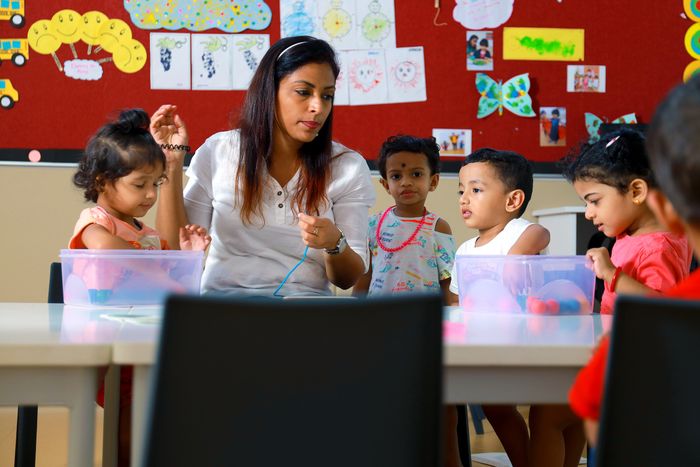


Language Development Begins at Home

Support for language development in early childhood needs to start right at the beginning and in the home.
Studies find that a home environment that supports language development in early childhood—across the first four years of life—predicts toddlers’s readiness to learn in pre-school, which in turn predicts the children’s academic skills later in life.
The findings challenge the idea that pre-school alone can help children “catch-up” after a poor start at home. Rather, support for language development and learning begins in infancy right at home.
Language Development can be enhanced through various activities
- Literacy activities in the home. Book-reading, storytelling and teaching of letters, words and numbers. Children’s engagement in shared book-reading and access to print materials are associated with higher language development in early childhood: skills in vocabulary, narrative construction, phonemic awareness, print concept knowledge, and positive attitudes towards literacy.
- Quality of parent-child interaction. Exposure to rich, varied and complex language in the early years improves language development, as does parental responsiveness and sensitivity.
- Learning materials present in the home. The presence of books, toys, games for free expression (such as crayons and puppets), toys that facilitate motor skills (such as blocks) and number/counting games. The presence of books in a household has been linked to a child’s expanded vocabulary. Toys that elicit symbolic play, such as telephones and tea sets, assist language development in early childhood.
The theory of “developmental cascades” proposes that early language skills lay a foundation for quicker learning at the next stage of development, and this pattern repeats itself over time. Then there is the possibility – as confirmed in this research – that home learning environments are relatively stable, so a child with a positive home learning environment is likely to be advantaged in later years, with positive habits solidifying. Thirdly, there may be positive feedback loops from children to parenting: a child with stronger language skills powerfully shapes the response of caregivers. Adults communicate more with children who communicate well, which further bolsters children’s skills. All this evidence points to the need to start support for language development in infancy and in the home to arm children with the abilities they need to do well in school.
References: Tamis-LeMonda CT, Luo R, McFadden KE, Bandel ET & Vallotton C (2019), The early home learning environment. Applied Developmental Science 23
« Keep your face to the sunshine and you cannot see a shadow || Empathy in Kids »





